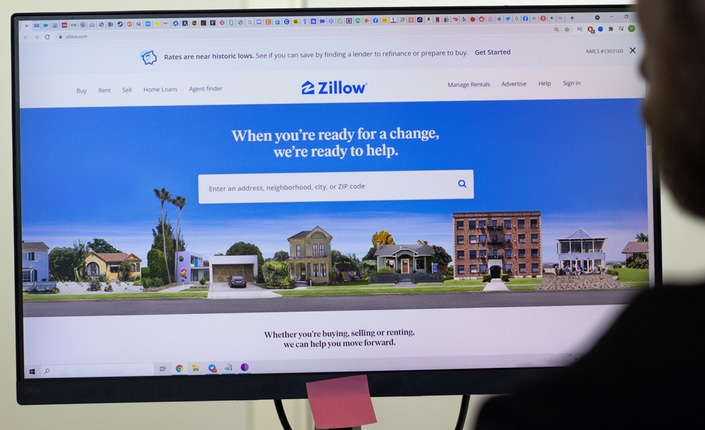
In a move that could lead to a serious change in its business model, Zillow has announced that it will be piloting a "post pay" model in two of its local markets and will be deliberately losing agent customers in those markets as a result.
Zillow's flagship standard Premier Agent product charges agents upfront for leads while under Zillow's Flex program selected agents don't pay the portal upfront but do pay the company a success fee (typically 35% of commission) if and when a lead transacts. Currently, the two programs work side by side across the country with any agent being able to access the Premier Agent product but only those meeting certain criteria allowed to access Flex.
From the 25th of May, the Seattle-based portal company will be experimenting with only offering the Flex product in Denver, Colorado and Raleigh, North Carolina. The upshot will be that all local agents currently signed up to the Premier Agent program will be kicked off with only a select few allowed to remain customers of the portal via its exclusive Flex program.
The move represents something of a calculated gamble for a company whose bottom line relies very heavily on the results of its Premier Agent business which powers the company's only consistently profitable business segment (IMT).
When asked by American agent publication Inman how many agents might be removed from the Premier Agent program in Denver and Raleigh, a Zillow spokesperson admitted that the figure would be "hundreds".
It isn't only agents whose relationship with Zillow is set to change in the two experimental markets. In a blog post on Zillow's website, SVP of Business Operations Stephen Capezza said that users filling in lead forms in Denver and Raleigh may be connected with a Zillow Advisor to help them "be better prepared to transact when they are connected [to a Flex agent]".
"This more targeted approach to innovating will help us get a cleaner, faster read on what works and what doesn’t, while minimizing potential disruptions to partners throughout the nation.
Strong partners in both Flex and market-based pricing are an essential piece of our vision for the future of Zillow and for the overall real estate industry. The value that agents provide as local experts with strong track records of success cannot be overstated. As we move forward, we will continue to work with strong partners in our pre- and post-pay pricing models who can deliver on customers’ needs, and we will provide them with resources to streamline and grow their businesses."
The idea behind the change in customer experience seems to be to weed out non-motivated leads before handing them over to agents and also to promote Zillow's own home loans product to the lead at an early stage.
The move to a purely performance-based model also makes sense for Zillow in the wider context of an industry where its main competitor Realtor.com has been moving toward this model for some time having discontinued its upfront lead gen product in favour of a referral approach back in 2020.
Like most leading real estate portals around the world, Zillow is unpopular among its agent customer base with many agents' belief that Zillow is a competitor having been strengthened by the tech company's $500m purchase of showing management and analytics platform ShowingTime in February 2021.
If Zillow can generate the same revenue, from fewer agents then the company limits its exposure to the risk of a dissatisfied customer base. To this point, when Inman put the question of whether Zillow would lose revenue in the two experimental cities as a result of changing its model, Capezza said that the switch would be "a pretty even move" on this front. He also intimated that aside from an agent's customer satisfaction rating and conversion rate, part of the criteria for Zillow's selection of agents allowed onto the Flex program would be how open and "excited" an agent is to Zillow's experiment.